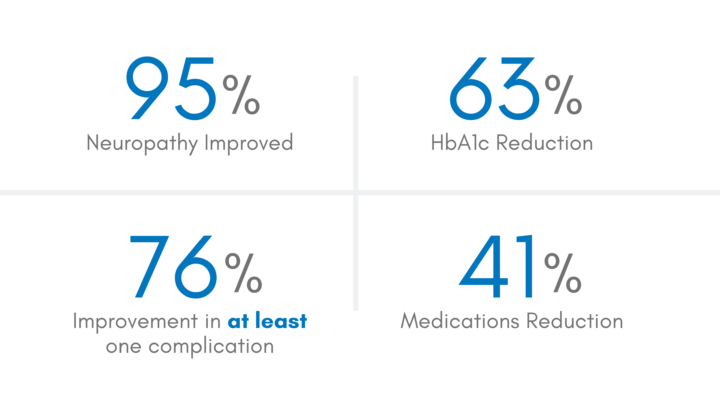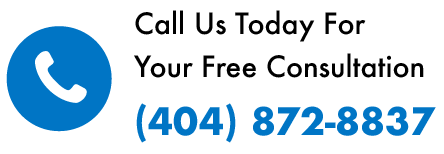Conditions
NEUROPATHY

Neuropathy Treatment in Atlanta
The peripheral nervous system, which refers to nerves outside the brain and spinal cord, may become damaged by a number of different conditions or types of trauma. Most commonly, neuropathy affects the hands and/or the feet causing a painful burning or tingling sensation. The most common form of neuropathy is symmetrical polyneuropathy, which mainly affects the feet and legs on both sides of the body. Often we find that the causes are categorized as neurological (nerve damage) or vascular based, a side effect of vein disease. The symptoms can be far-ranging as the sensations may come and go depending on the underlying factors that are causing the neuropathy. Some of the most common issues that are associated with neuropathy are diabetes, chemotherapy, prolonged medication use, cholesterol drugs, chronic fatigue, fibromyalgia, alcoholism, and trauma but many cases are idiopathic in nature, meaning the cause is unknown.

Neuropathy Treatment
At Atlanta Medical Clinic, our groundbreaking treatment protocol not only helps relieve the symptoms of peripheral neuropathy but also works to restore the function of damaged nerves. This cutting-edge combination of therapies has helped many patients achieve long-lasting relief of symptoms without the pills and associated side effects.
Diagnosis of Neuropathy
Next, an ultrasound test will be performed on the veins in the lower extremities to determine if venous reflux or vein disease is present. Veins are responsible for carrying blood back to the heart. When the blood flows backward known as reflux, blood pools and reduces the efficiency of blood flow to the extremities. This affects the nerves causing pain and discomfort just like when your foot or hand falls asleep due to lack of circulation. By evaluating, diagnosing, and correcting the vein disease we can treat the potential cause of your neuropathy and provide relief.
Atlanta Diabetic Neuropathic Pain Relief Treatment – Groundbreaking Treatment for Type 1, Type 2 & Pre-Diabetes
Infusion Treatments for Diabetics – Physiologic Cellular Restoration
Atlanta Medical Clinic is one of the only providers in the Atlanta area to offer this groundbreaking treatment that can stabilize, and in some cases, even reverse the complications caused by diabetes and other metabolic disorders.
Our treatment works by administering insulin as a hormone, rather than a drug, in a way that mimics how the body naturally processes it. This method has been used to treat Type 1, Type 2, as well as Pre-Diabetic patients to improve insulin resistance, and helps cells convert sugar into energy more readily.
This treatment program has yielded significant results from patients suffering from neuropathy and other complications caused by diabetes. 95% of patients reported a significant improvement in their neuropathy, as well as vast improvements in other complications and a reduction in overall medication needed.

Our diabetic infusion treatments consist of sessions where a patient will receive 1-2 infusions per week for a typical period of 90 days. The goal with each patient is to establish a “maintenance phase” where a balance between improved metabolism and insulin sensitivity has been reached while extending as much time between treatments as possible.
Every patient’s condition is unique and will be fully assessed by a physician before a treatment plan is recommended.
Once the diagnostics are completed and the doctor determines that the patient is a candidate for the neuropathy program, treatments will begin. Under the neuropathy treatment umbrella, a physician may recommend a combination of other therapies to treat the painful conditions of diabetic neuropathy including:
1. Peripheral Nerve Block (Ankle Block)
The ankle is injected with a non-steroidal anesthetic. This causes local blood vessels to dilate, allowing for better circulation around the nerves. This process facilitates improved oxygen delivery to the nerves which promotes restoration of the damaged nerve fibers. The anesthetic also helps to rechannel the neurological pain pathway which blocks the perception of pain offering symptom relief.
2. Venous Reflux (Vein Disease)
Correcting vein disease or reflux can be done in two ways:
ClariVein®IC:
ClariVein®IC is a minimally invasive, new technique for the treatment of diseased veins/varicose veins or spider veins. Using a controlled 360-degree dispersion of physician-specified agents, ClariVein®IC is designed to reduce pain and discomfort, eliminate bruising, speed up recovery and deliver clinically proven results for varicose veins.
Microfoam:
-
The doctor administers a small amount of microfoam through a catheter or by direct injection into the malfunctioning vein
-
The microfoam fills and treats the desired section of the vein
-
The diseased vein collapses and the microfoam is deactivated
-
When the malfunctioning vein collapses, blood flow shifts to healthier veins nearby
Minimally Invasive, Non-Surgical
Treatment with the microfoam does not require any incisions or general anesthesia. It usually takes the doctor less than 30minutes to administer. Patients may resume some activities the same day but should avoid heavy exercise for one week.
3. H-Wave Therapy
H-Wave therapy, a type of electric muscle stimulation, is designed to improve circulation and reduce inflammation. Proven to have profound effects on inflammation reduction the H-Wave stimulates the body’s natural repair mechanism offering not only pain relief but enhanced function to the areas in question. H-Wave therapy is administered after each ankle block to assist in the facilitation of the healing process.
4. Cold Laser Therapy
Cold laser therapy is also known as phototherapy or light therapy. In laser therapy, certain wavelengths of light- red and near-infrared create therapeutic effects including improved circulation, pain reduction, decreased swelling, and faster healing time. The cold laser is applied during each treatment to the ankle and foot and is painless.
If you suffer from any of the painful symptoms associated with neuropathy and have tried unsuccessfully to achieve pain relief call today for a free consultation.
Find Relief Now!
Call Us Or Sign Up To Request Your Free Consultation:
What Patients Are Saying


